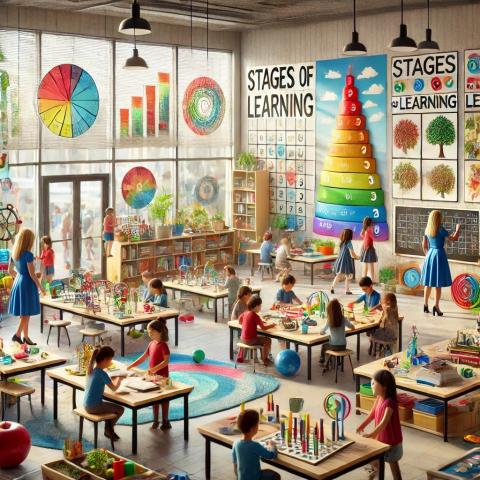
Reimagining Schools: Moving Beyond Grades and Exams
The terminal exam season is around the corner, and pre-board exams have already begun. Before the final exams in February and March, schools are immersed in a relentless cycle of tests, tests, and more tests. This is what the next two months will look like—leading to stress, fear, and anxiety for students and teachers alike.
But was this ever part of our vision for school life? Certainly not! This represents the most distorted version of what school life should be.
Is There a Way Out?
I have always envisioned schools as spaces where students grow in a stress-free environment, flourishing both intellectually and emotionally. However, with the current examination system, it is hard to imagine schools as places that foster health and happiness for both students and teachers.
It’s not that solutions are unavailable. Recently, I had the opportunity to read a journal article titled “Beyond the Oxymoronic Idea of No-Detention Policy” by Rohit Dhankar. The ideas he proposes are both thought-provoking and powerful. Here are a few key arguments he makes:
- Age-Based Grades Are a Flawed System:
Every child learns at their own pace. The concept of age-based grades is convenient only for bureaucratic systems, not for the benefit of children or teachers. - Stage-Based Learning:
Dhankar proposes replacing the grade system with stage-based learning. Each stage would have clearly defined learning outcomes, and children could move from one stage to another regardless of their age. - A Learning Corridor, Not a Thin Line:
Learning achievement should not be measured as a rigid pass/fail dichotomy but as a continuum, or a "learning corridor." This approach recognizes the diversity in students' learning curves and allows for flexibility. - Learning as a Curve, Not a Straight Line:
Children’s learning should be seen as a developmental curve, where progress happens at varied speeds, rather than a linear, standardized progression.
Each of these arguments is supported by evidence and research, making this approach not only visionary but also practical.
The NEP Connection
Interestingly, the National Education Policy (NEP 2020) hints at a similar approach by proposing to divide schooling into four stages:
- Foundational (5 years)
- Preparatory (3 years)
- Middle (3 years)
- Secondary (4 years)
This framework provides an opportunity to shift towards stage-based learning outcomes. If implemented in true spirit, it could restore the joy of childhood to our schools. Otherwise, the current examination practices will continue to deprive children of meaningful learning, reducing education to rote memorization with little connection to skill development or competency building.
The Way Forward
The NEP (2020) provides the mandate for reform, and now is the time to act. Stage-wise learning outcomes need to be clearly identified, which will require a restructuring of schools. In this new model:
- Classrooms would accommodate children of different age groups learning together.
- This approach would eliminate the stigma often faced by children who are detained and must repeat grades alongside younger peers.
- Most importantly, it would remove the rigid pass/fail system, creating a more inclusive and equitable learning environment.
Transitioning to this model will be challenging, given our deep-rooted conditioning to the idea of moving from one grade to the next based on age. However, this reform is essential if we want to rescue our schooling system from its current state.
It may not be easy, but it is necessary—for the sake of our children, our teachers, and the true purpose of education.
Find the original article at
https://www.researchgate.net/publication/315618898
- Log in to post comments
